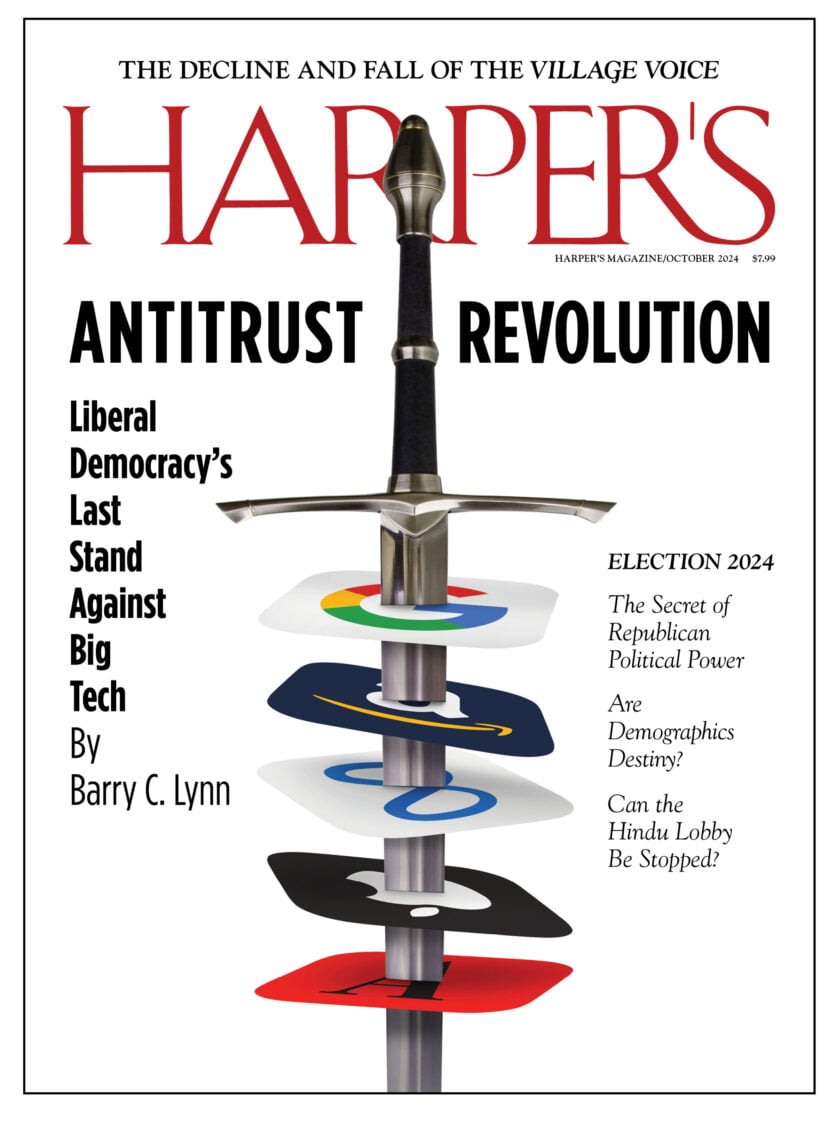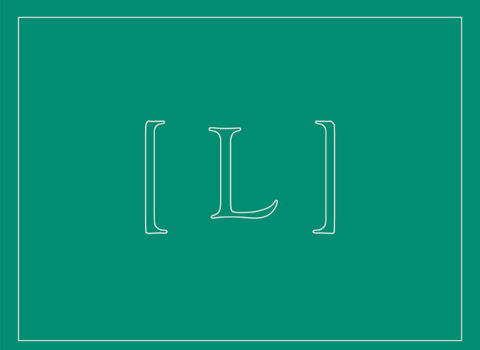Harper’s Magazine, The Atlantic, and Big Tech
Our October issue is now available, and we’ve received numerous requests to explain the appearance of The Atlantic’s logo beneath those of Google, Amazon, Meta, and Apple on the cover. To quote Simon van Zuylen-Wood of New York magazine, in a post on X: “Why is The Atlantic included on this list of tech giants??” The Atlantic is owned by Laurene Powell Jobs’s Emerson Collective, and the magazine is now, in effect, a subsidiary of Apple and a tool of OpenAI.
The Atlantic’s “product and content partnership” with OpenAI was announced in late May in a joint statement on theatlantic.com and openai.com, two months before we began production on this issue of Harper’s. The partnership not only allows ChatGPT unfettered access to mine every word The Atlantic publishes online, but positions the magazine as “a premium news source within OpenAI.” This troubling consolidation of access to news and information echoes the monopolistic digital land grabs of recent years: Google’s search empire (which now ranks its AI-generated search results first), Amazon’s e-commerce juggernaut (which devastated the book-publishing industry), Meta’s social-media domination, and Apple’s hardware hegemony. Our October issue’s cover story, Barry C. Lynn’s “The Antitrust Revolution,” takes a broad, historical look at democracy’s “last stand” against these tech titans as even longtime stalwarts of independent journalism and thought are swayed by the siren song of Silicon Valley. Lynn writes, “When an influential news outlet—say, the New York Times or News Corp—agrees to accept a lucrative under-the-table payment from Google or Facebook, it’s hard not to conclude that such a publisher will think twice before joining such a fight or bringing the full weight of its reporting to bear on its online partners.” Lynn is a frequent contributor to Harper’s, with previous features on Big Tech’s extortion racket, the new monopolies destroying open markets, and more. Although he doesn’t directly discuss The Atlantic in his essay, we felt this recent development merited a “skewering” on our cover.





